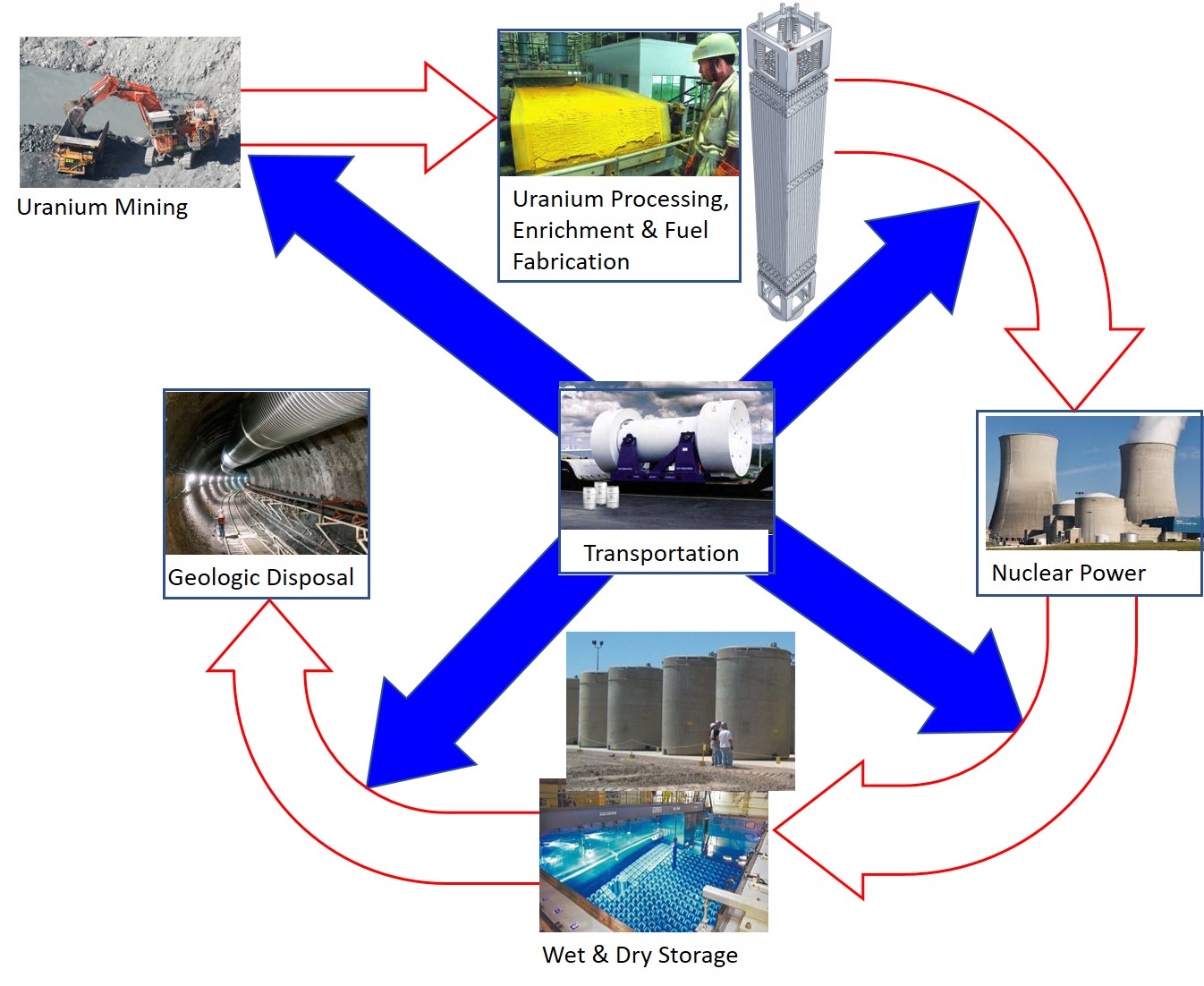- Strategic and operational planning for SNF transportation. This includes:
- Defining the transportation infrastructure needs for any SNF project and capturing lead times for procuring key assets;
- Developing compliant SNF transport plans that address NRC, DOT, DOE, FRA, AAR and other federal and industry requirements;
- Technical, cost and schedule baseline guidance and development for SNF transport projects;
- Stakeholder outreach and development for obtaining informed consent with states and tribes along the transport corridors;
- Knowledge of capabilities and limitations of private sector vendors that provide transportation services for radioactive materials and waste.
- Expert NEPA support and guidance
- Helping private sector entities develop all elements of Environmental Reports for proposed SNF storage and processing facilities;
- Expert guidance on assessing the economic impacts for NEPA purposes and for business model development;
- Identification of viable transport options for consideration along with costs and schedule impacts of each;
- Help crafting Records of Decision for federal NEPA actions.
- SNF management project reviews and guidance. This includes:
- Review of optional SNF transportation and storage configurations against the regulations and available technology;
- Guidance and assumption checks for business plan development. This is in the context of the Nuclear Waste Policy Act, viable contract arrangement with the federal government, available technology and real-world costs for transportation and facility development;
- Original design, and technical/operating reviews for proposed SNF storage and processing facilities. This is in the context of the Nuclear Waste Policy Act, baseline data on international storage facility designs, and federal regulations.
Moving between phases in the nuclear fuel cycle requires specialized transportation operations. The degree of transport specialization increases dramatically once the nuclear fuel has been used in a nuclear power plant. Subsequent phases are collectively known as the back end of the nuclear fuel cycle. Although RAMTASC is willing and able to provide project support for all phases of nuclear fuel cycle operations, our core specialty is on back end projects. As outlined on the "Who is RAMTASC" page, Gary Lanthrum has spent the past 22 years setting policy and managing transportation and storage projects for back end programs. He has provided this technical and managerial support for both federal and private sector projects. Gary is well versed in the drivers important to decision making in both sectors. RAMTASC’s key offerings center around:
THE NUCLEAR FUEL CYCLE
RAMTASC OFFERINGS





